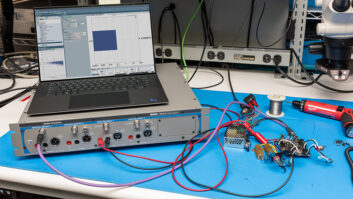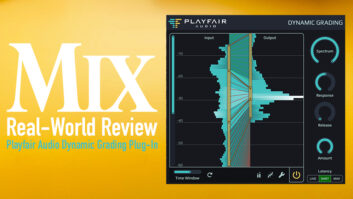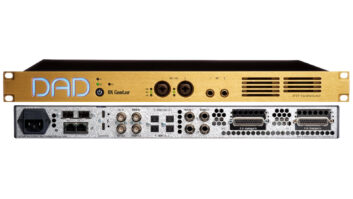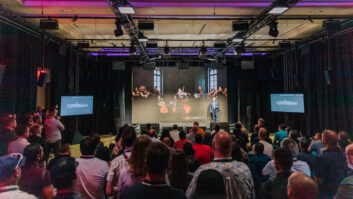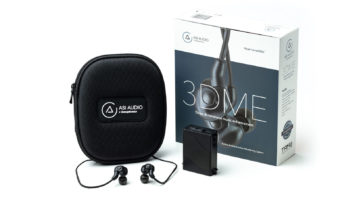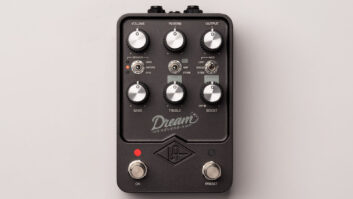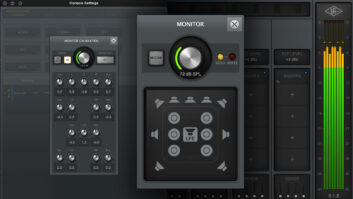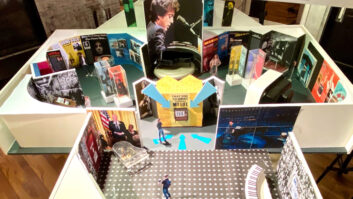Thompson’s Understanding Audio was the textbook for his new Audio Basics for Recording class.
For Dan Thompson, a professor with the Berklee College of Music, the ability to become a great producer begins with the basics. “A big part of the job (as a producer/ engineer) is making things work and solving problems quickly. The only way to be effective in that is to have a solid understanding of how something works,” Thompson explained.

So when designing his new online course, “Audio Basics for Recording,” Thompson wanted to be sure to direct as much emphasis as possible on teaching his students about signal flow, providing them with the tools to solve any problems they might encounter while recording in the real world.
Thompson has been part of Berklee’s Music Production program for 25 years, and is Assistant Chair of Music Production and engineering. A Harvard graduate and independent audio engineer and producer, he has worked on various record, television shows and films.
“Audio Basics for Recording” debuted through Berklee’s online school, Berkleemusic.com, this past fall, and as Thompson completes the final grading for the semester, he is also reviewing the pros and cons of the course to improve on it.
As a student in Thompson’s “Audio Basics” class, I can attest that this class offers students exactly what it advertises: the basics. Over the 12-week course, students not only learn about various pieces of audio equipment—from microphones and speakers, to analog consoles and DAWS—but also get a more detailed look at basic signal flow, and how audio is mixed through that flow to eventually produce a single track.
“I’m a real believer in the concept of signal flow as the route of interfacing technology,” Thompson said. “I hope through these lessons that students realize there’s no magic [in audio recording] and there is a consistency with how everything works.”
Because the course is offered online, Thompson said one of the biggest challenges was creating that “class-like community” with his students scattered across the country. Each week, Thompson would hold an hour-long discussion with his students, offering them a chance to ask questions about the week’s lesson. “The challenge this presents is finding times for people to meet (online) on a weekly basis,” Thompson explained. “Most students are taking this class on top of everything else they do, and many students are working full time.”
The other challenge, for Thompson, was accommodating the various backgrounds of each student in terms of experience with audio recording. “One of the ways we tried to deal with that is to have pre-requisites,” Thompson said.
Like any online course, the weekly lessons required a lot of focus from the students. For the hands-on learner, gaining a clear idea of how a system works can become difficult without the equipment in front of you. But with that in mind, Thompson demonstrated how the equipment worked through a live sketchpad program, where students could see a visual while Thompson explained the lesson. The use of videos and diagrams also helped provide visuals for students to better understand how a piece of equipment works.
Thompson also said the online course provided challenges with allowing students to share information and learn from each other while they worked through the course material together. “The positive difference with an online course is the fact that often times in learning, it takes coming back to the material again and again [to understand it], and having that material online so you can see it in graphic or in movie form again and again is really effective,” Thompson explained. “The obvious difference is the concept of a classroom environment. One of the advantages of a classroom is that physically, there is a community, and the challenge with online is how you replicate that?”
Since this was the first semester the course was offered, Thompson said he is using his own observations, along with feedback from the class, to determine the success of the course. “Because this is the course’s first run, there’s an opportunity to explore,” Thompson said. “I hope, having completed the course, students will feel more confident in their ability to tackle systems.”
BerkleeMusic
www.berkleemusic.com
